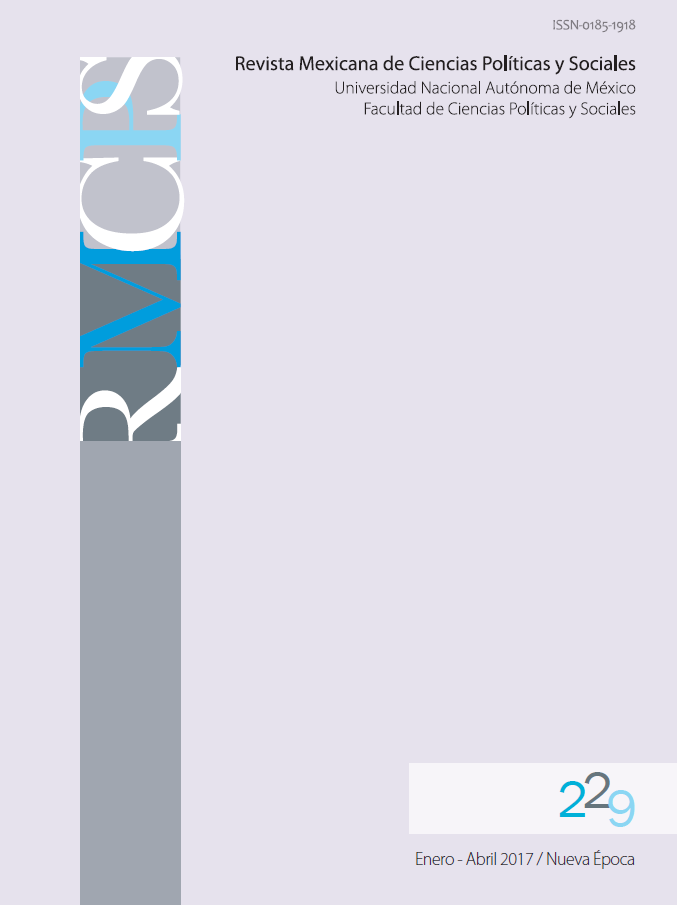The Battle of Ideas and Emotions in Latin America
Main Article Content
Abstract
The long and labyrinthine process that Latin America has undergone in its way towards democracy has been marked by the same confrontations and quarrels present throughout the Western intellectual history, which have sometimes been expressed as a fight between "ideas and emotions." In Latin America, this intellectual quarrel may be described in Julio Cortazar’s terms, as a struggle between "Baroque cronopios" versus "Gothic fames," or as a war between two cultures: "that of blood and that of ink," echoing the erosion of the great theories and traditional ideologies. Thus, in the wake of the political and cultural developments resulting from globalization, the Latin American democratic transitions, and the fall of the socialist bloc, we know that we are witnessing the end of an era, but we cannot yet define the new age. This article ponders, thus, what the revival of romantic views and emotions may mean at the beginning of the 21st century. Mexico, in particular, faces a major political and cultural challenge, resulting from the fact that the Mexican society is still immersed in the culture of the Revolution’s nationalism. The perennial struggle between ideas and emotions has become manifest again in the form of a dilemma between attaching to an identity in crisis and trying to reconstruct it, or rather looking ahead with the aim of creating a new democratic civic culture.
Downloads
Article Details
References
Altmann, Josette; Beirute, Tatiana; Falconí, Fander y Francisco Rojas Aravena (coords.) (2011) América Latina y el Caribe: Perspectivas de desarrollo y coincidencias para la transformación del Estado. Informe preparado por la Secretaría General de FLACSO para la XXI Cumbre Iberoamericana. San José, Costa Rica: FLACSO.
Bartra, Roger (1987) La jaula de la melancolía: identidad y metamorfosis del mexicano. México: Grijalbo.
Bartra, Roger (1992) El salvaje en el espejo. México: Era/UNAM.
Bartra, Roger (1997) El salvaje artificial. México: Era/UNAM.
Bartra, Roger (1999) La sangre y la tinta. Ensayos sobre la condición postmexicana. México: Oceano.
Bartra, Roger (2001) Cultura y melancolía: Las enfermedades del alma en la España del Siglo de Oro. Barcelona: Anagrama.
Bartra, Roger (2003) Oficio mexicano [2ª ed]. México: Conaculta.
Bartra, Roger (2007) Territorios del terror y la otredad: Ensayos de cultura política. Valencia: Pre-textos.
Bartra, Roger (2009) La fractura mexicana: izquierda y derecha en la transición democrática. México: Debate.
Barzun, Jacques (1960) Classic, Romantic and Modern. Chicago: University of Chicago Press.
Berlin, Isaiah (1999) The Roots of Romanticism [1a ed., 1965]. Princeton: Princeton University Press.
Cavalli-Sforza, L. Luca; Menozzi, Paolo y Alberto Piazza (1996) The History and Geography of Human Genes. Princeton: University Press, Princeton.
Echeverría, Bolívar (comp.) (1994) Modernidad, mestizaje cultural, ethos barroco. México: UNAM/El Equilibrista.
Emeequis (2007) Entrevista de Ignacio Limón a Paco Ignacio Taibo II, 9 de abril.
Galeano, Eduardo (1980) Las venas abiertas de América Latina [1ª ed., 1971]. México: Siglo XXI.
Gellner, Ernest (1998) Language and Solitude. Wittgenstein, Malinowski and the Habsburg Dilemma. Cambridge: Cambridge University Press.
La Jornada (2006) 10 de septiembre.
Praz, Mario (1999) La carne, la muerte y el diablo en la literatura romántica [trad. de R. Mettini]. Barcelona: El Acantilado.

La Revista Mexicana de Ciencias Políticas y Sociales publicada por la Universidad Nacional Autónoma de México se distribuye bajo una Licencia Creative Commons Atribución-NoComercial-SinDerivar 4.0 Internacional.
Basada en una obra en http://www.revistas.unam.mx/index.php/rmcpys/
La RMCPyS autoriza a sus colaboradores que suban una copia de sus trabajos publicados en sus webs personales o en cualquier repositorio de acceso abierto, siempre y cuando se mencione específicamente a la Revista Mexicana de Ciencias Políticas y Sociales como fuente original de procedencia, citando el año y número del ejemplar respectivo y añadiendo el enlace a la página web donde este órgano editorial puede ser consultado in toto, de manera abierta y gratuita en: <www.revistas.unam.mx/index.php/rmcpys>.
Las y los lectores tienen libertad para:
Compartir, copiar y redistribuir el material en cualquier medio o formato.
El licenciante no puede revocar estas libertades en tanto usted siga los términos de la licencia.
De acuerdo con los siguientes términos:
- Atribución: la/el lector/a debe reconocer el crédito de una obra de manera adecuada, proporcionar un enlace a la licencia, e indicar si se han realizado cambios. Puede hacerlo en cualquier forma razonable, pero no de forma tal que sugiera que tiene el apoyo del licenciante o lo recibe por el uso que hace.
- No comercial: la/el lector/a no puede hacer uso del material con fines comerciales.
- Si se mezcla, transforma o se desarrolla a partir de la obra licenciada, no se permite la distribución del material modificado.
Cargos por gestión de artículos
La Revista Mexicana de Ciencias Políticas y Sociales NO cobra tarifas por recibir, procesar o publicar los artículos (Article Processing Charge [APC]) enviados por los autores.

